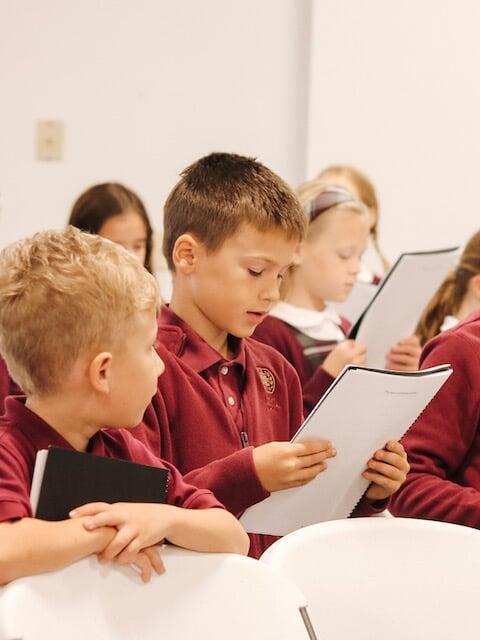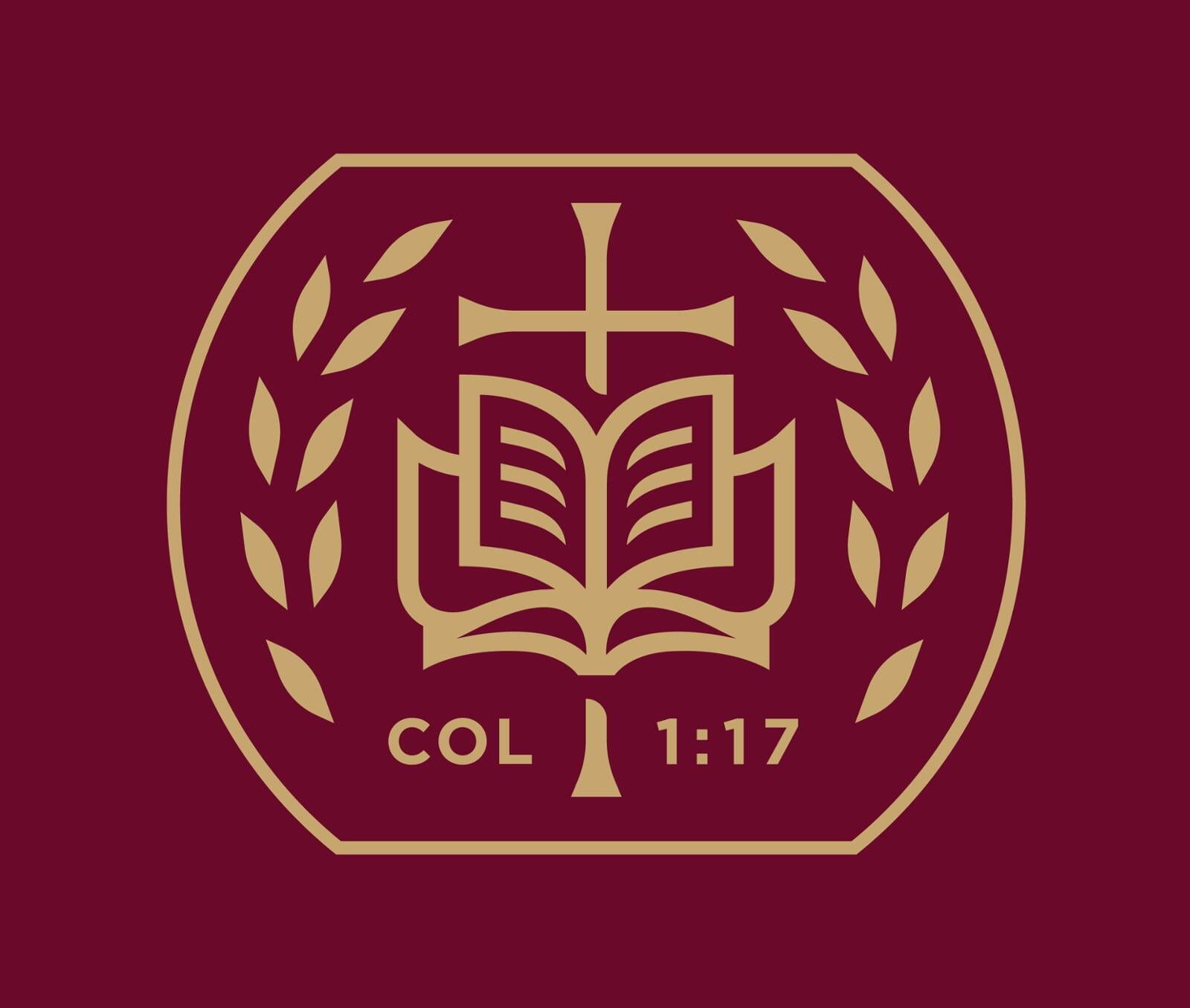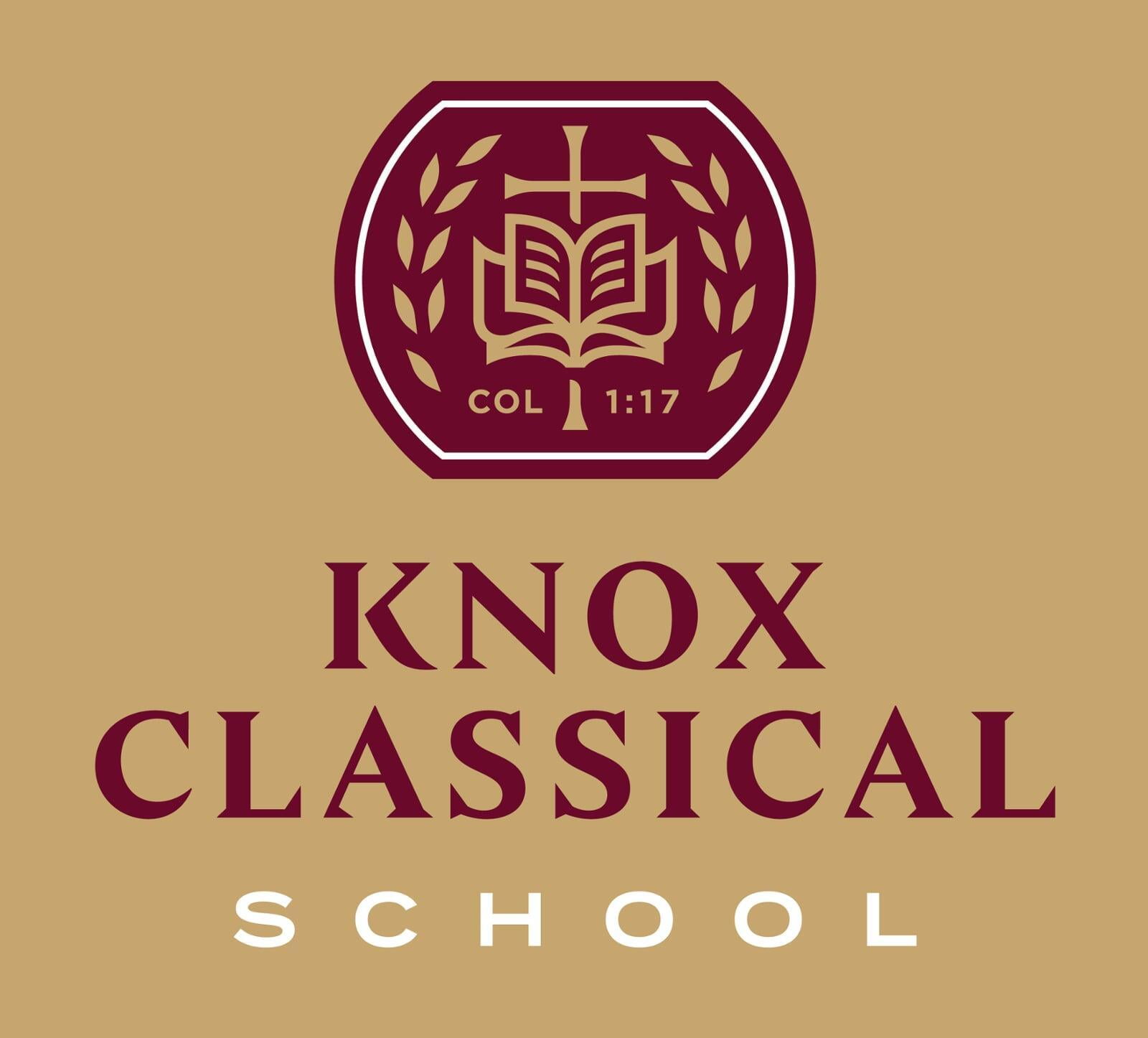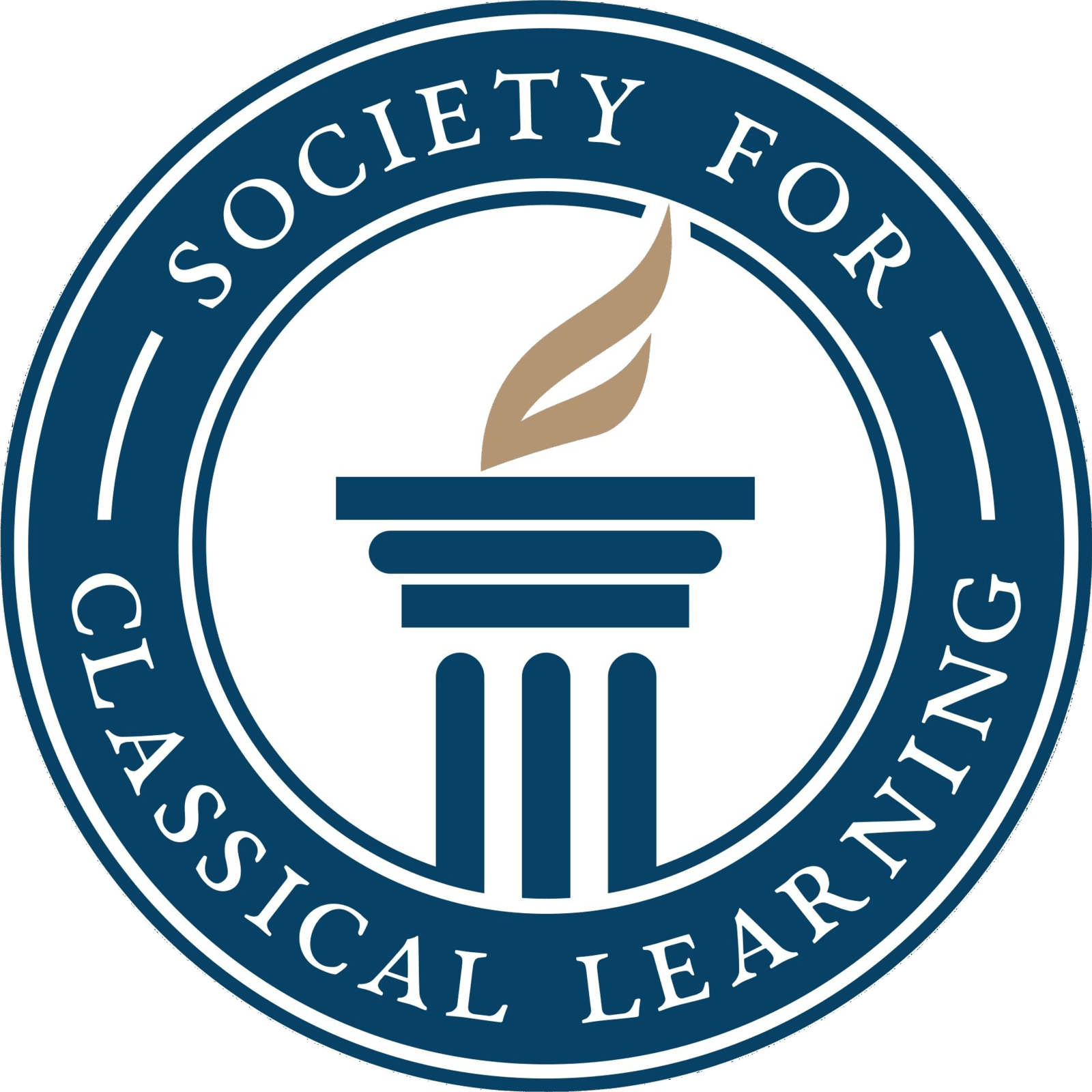Grammar School (Grades 1–6)
Our grammar school program thoroughly prepares students to "take every thought captive to obey Christ" (2 Cor. 10:5), "abhor what is evil," and "hold fast to what is good" (Rom. 12:9). These students are eager to absorb countless facts, stories, and basic skills that will lay the foundation for future learning.
Using songs, chants, and narration, our lower grammar students (grades 1–2) master phonograms, spelling rules, English grammar concepts, math facts, timeline events, Scripture passages, poetry, and basic Latin vocabulary. They listen extensively to good books and copy beautiful passages of excellent language.
They use manipulatives to discover new math concepts, and they study science by reading, lapbooking, and participating in demonstrations.
They relish history studies through living books and delight in classic children's literature. They learn art techniques that complement their historical studies and learn to recognize the works of master painters and composers.
Finally, they practice habits to help them love God and love their neighbor—kindness, patience, courtesy, and honesty.
Our upper grammar students (grades 3–6) are increasingly strong spellers and readers and ready to learn the arts of composition and more advanced grammar.
Their math studies train them to think creatively about how to solve problems, and studying Latin trains upper grammar students to think in a careful and orderly way.
They begin discussing interconnecting threads in their humanities studies, dive deeper into fine-arts history and technique, read literature and poetry selections to help them develop good character, and continue building up a treasure trove of basic scientific knowledge.
They continue hiding Scripture in their hearts, and they practice habits of responsibility, joyfulness, self-control, thought of God, gratitude, gentleness, reverence, and humility.

By the end of grammar school, our students should be strong readers and writers, having mastered proper use of the English language, and confident young mathematicians with excellent skills in arithmetic. They will have been introduced to characters, places, and events across human history and marveled at different areas of scientific study.
Above all, they will have memorized extensive Scripture passages—along with over 100 catechism questions, answers, and proof verses—preparing them for in-depth studies of apologetics, theology, and church history. And their careful efforts to develop good habits will equip them to act virtuously as young followers of Christ.

Grammar School Cycles: Humanities and Science
Following a kindergarten year in which students are introduced to the entire story of history and a range of scientific disciplines, all of our Knox Classical students hop aboard our current year of a four-year cycle studying the humanities (including Bible, history, literature, and geography) and science. This four-year-cycle approach means that students will revisit historical time periods and scientific disciplines three times between grades 1–12, learning at a deeper level each time.
Organizing all of our students’ humanities and science studies based on this cycle offers a couple of rich benefits. Aligning science studies with the approximate times those disciplines arose prepares students to recognize connections between historical events and the advancement of science. This also means that, unlike most modern educational methods that teach history in detached units, our students will understand history as a cohesive whole—and trace God's providential plan through it all.
Integrating humanities & science studies across grade levels also furthers our mission as a collaborative school by ensuring that siblings can learn together. And during on-campus days, integrating our studies allows us to mix ages and grade levels for certain projects or demonstrations—and provides a sense of community as students study the same things at the same time.
Humanities & Science Cycles
| Kindergarten (Pre-Cycle) | Year 1 (2024-2025) | Year 2 (2025-2026) | Year 3 (2026-2027) | Year 4 (2027-2028) | |
| Humanities | Primer (Creation - Modern America Today) | The History of Redemption: The Books of Moses - Western Rome Falls | Between Ancient and Modern: The Middle Ages - Age of Revolutions | The Nineteenth Century: Napoleon's World - The Gilded Age | The Twentieth Century: Dawn of the Twentieth Century - The Postmodern World |
| Science | Intro to Science | Biology | Earth Science & Astronomy | Chemistry | Physics |


